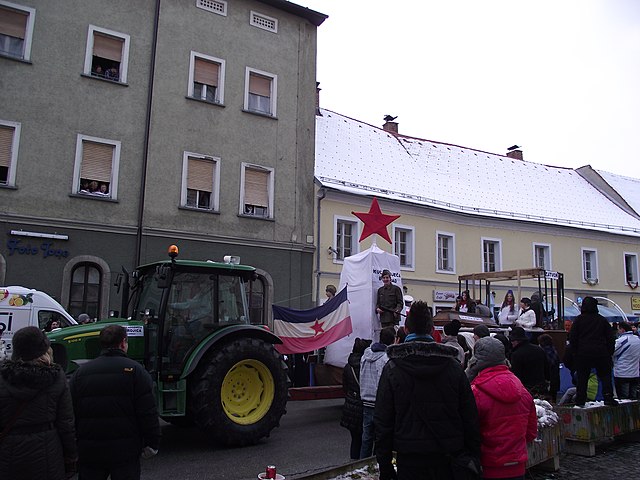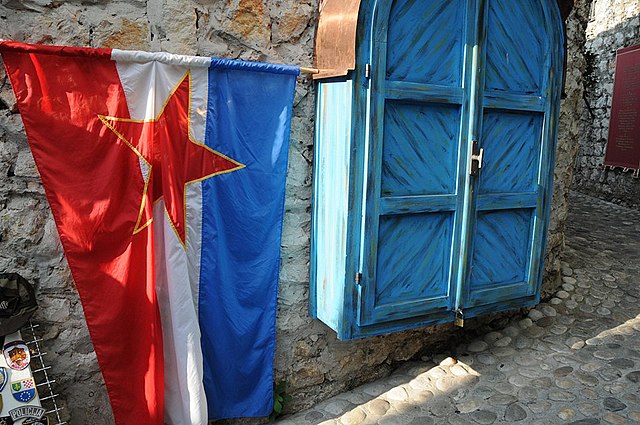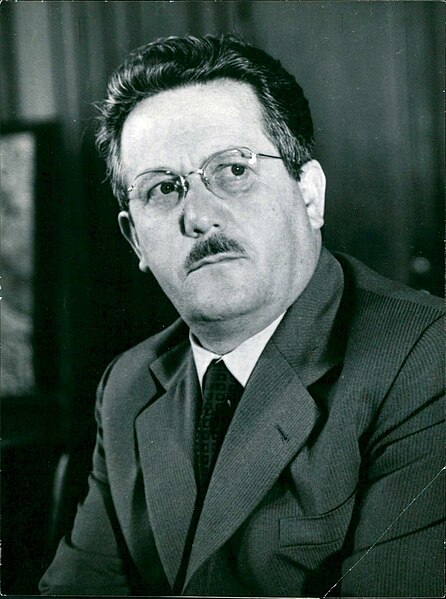Yugo-nostalgia is an emotional longing for the former country of Yugoslavia which is experienced by some people in its successor countries: the present-day Bosnia and Herzegovina, Croatia, Montenegro, North Macedonia, Serbia, Kosovo, and Slovenia. It is a political and cultural phenomenon that includes nostalgia for a time past when the splintered states were a part of one country, grief over the war that tore it apart, and a desire to again unite. Self-described Yugo-nostalgics may express grief at the failure of brotherly love, unity, and coexistence, and distress at division and nationalism, or they may express that their quality of life was better in Yugoslavia.
Yugoslav symbols during a carnival in Ptuj, Slovenia, in 2013
Yugoslav flag on a street in Mostar, Bosnia and Herzegovina, in 2009
T-shirts on sale in Tito's birthplace of Kumrovec, Croatia, 2012
Tito memorabilia in an outdoor market in Sarajevo, Bosnia and Herzegovina, 2009
Titoism is a socialist political philosophy most closely associated with Josip Broz Tito during the Cold War. It is characterized by a broad Yugoslav identity, socialist workers' self-management, a political separation from the Soviet Union, and leadership in the Non-Aligned Movement.
Josip Broz Tito meeting with Bolesław Bierut and Michał Żymierski from the Polish People's Republic in 1946.
Tito, Nehru and Nasser in 1961, three of the five founders of the Non-Aligned Movement.
Edvard Kardelj
Aleksandar Ranković








